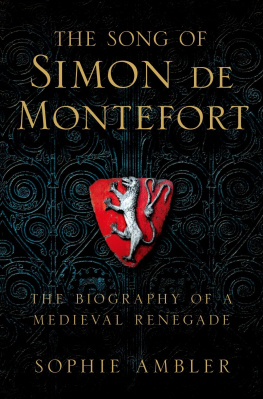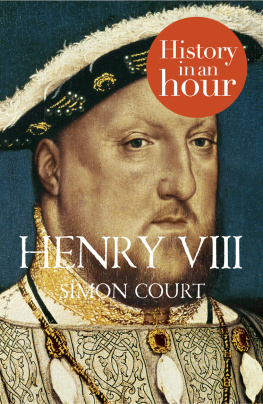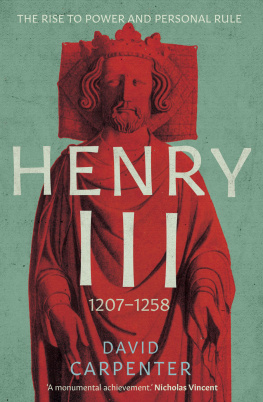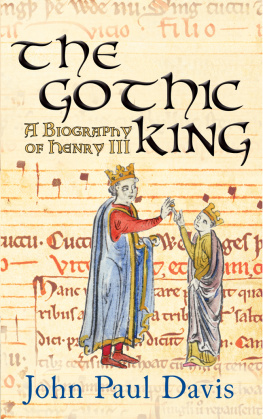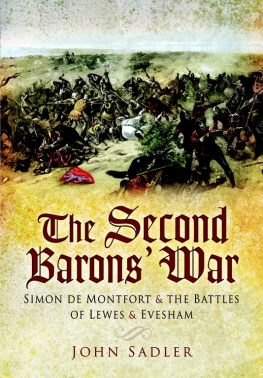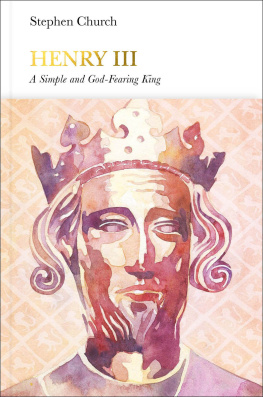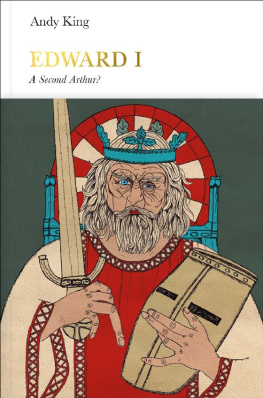The Song of
Simon De Montfort

Oxford University Press is a department of the University of Oxford. It furthers the Universitys objective of excellence in research, scholarship, and education by publishing worldwide. Oxford is a registered trade mark of Oxford University Press in the UK and certain other countries.
Published in the United States of America by Oxford University Press
198 Madison Avenue, New York, NY 10016, United States of America.
Sophie Thrse Ambler 2019
First published in Great Britain by Picador
All rights reserved. No part of this publication may be reproduced, stored in a retrieval system, or transmitted, in any form or by any means, without the prior permission in writing of Oxford University Press, or as expressly permitted by law, by license, or under terms agreed with the appropriate reproduction rights organization. Inquiries concerning reproduction outside the scope of the above should be sent to the Rights Department, Oxford University Press, at the address above.
You must not circulate this work in any other form and you must impose this same condition on any acquirer.
Library of Congress Cataloging-in-Publication Data
Names: Ambler, Sophie, author.
Title: The song of Simon de Montfort : the life and death of a medieval revolutionary / Sophie Thrse Ambler.
Description: New York, NY : Oxford University Press, 2019. | Includes bibliographical references and index.
Identifiers: LCCN 2019019349 | ISBN 9780190946234 (hardback) | ebook ISBN 9780190946258
Subjects: LCSH: Montfort, Simon de, Earl of Leicester, 1208?1265. | Great Britain. ParliamentHistoryTo 1500. | RevolutionariesGreat BritainBiography. | NobilityGreat BritainBiography. | Great BritainHistoryBarons War, 12631267. | Great BritainHistoryHenry III, 12161272. | Great BritainPolitics and government12161272. | BISAC: HISTORY / Medieval. | BIOGRAPHY & AUTOBIOGRAPHY / General.
Classification: LCC DA228.M7 A64 2019 | DDC 942.03/4092 [B]dc23
LC record available at https://lccn.loc.gov/2019019349
1 3 5 7 9 8 6 4 2
Printed by LSC Communications United States of America
For Mary and Kate
Touz beveroms hui de un hanap, come piea avoms fet.
Contents
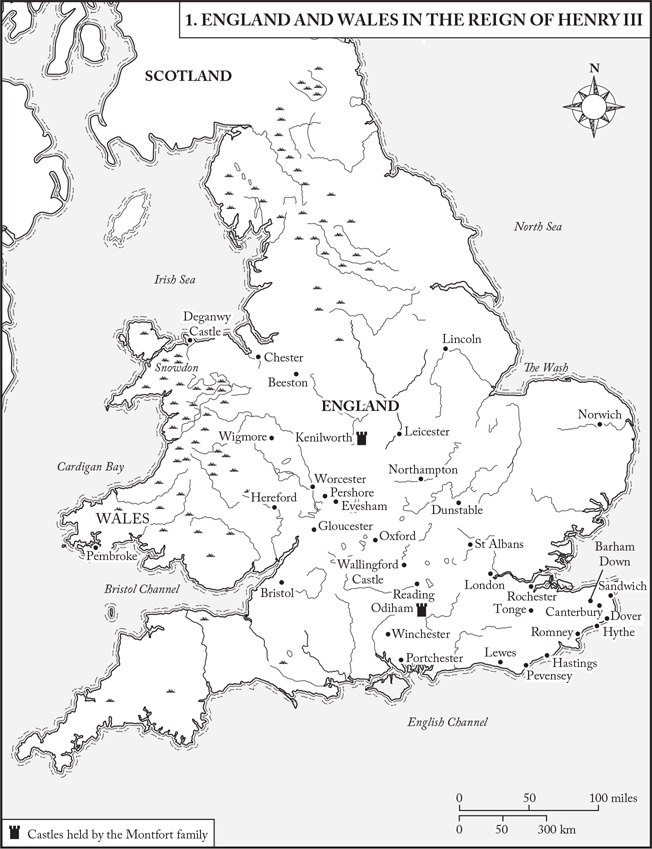
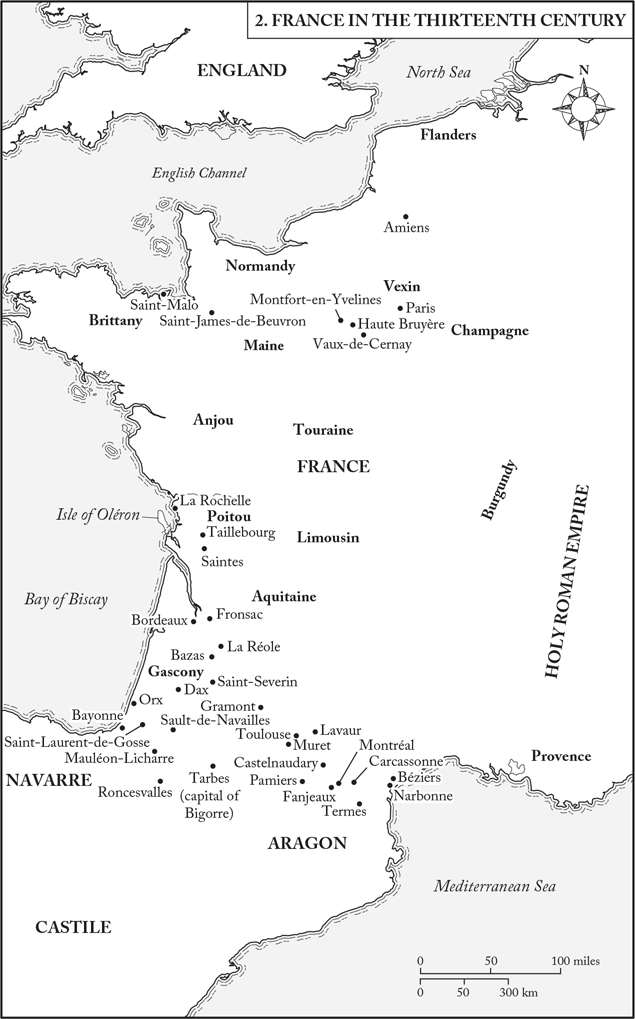
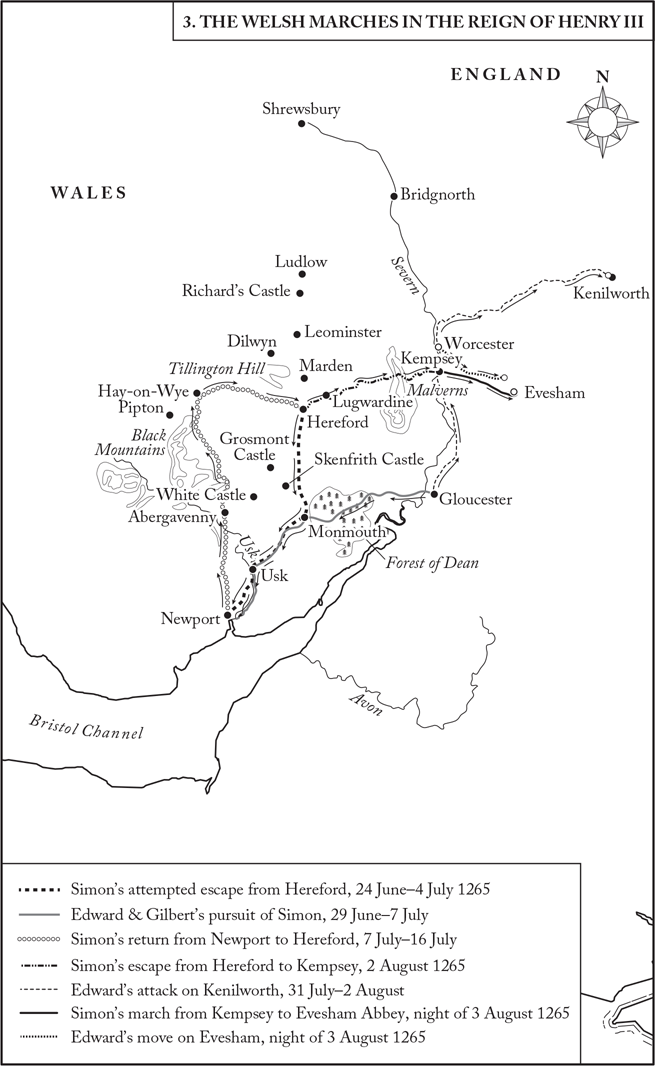
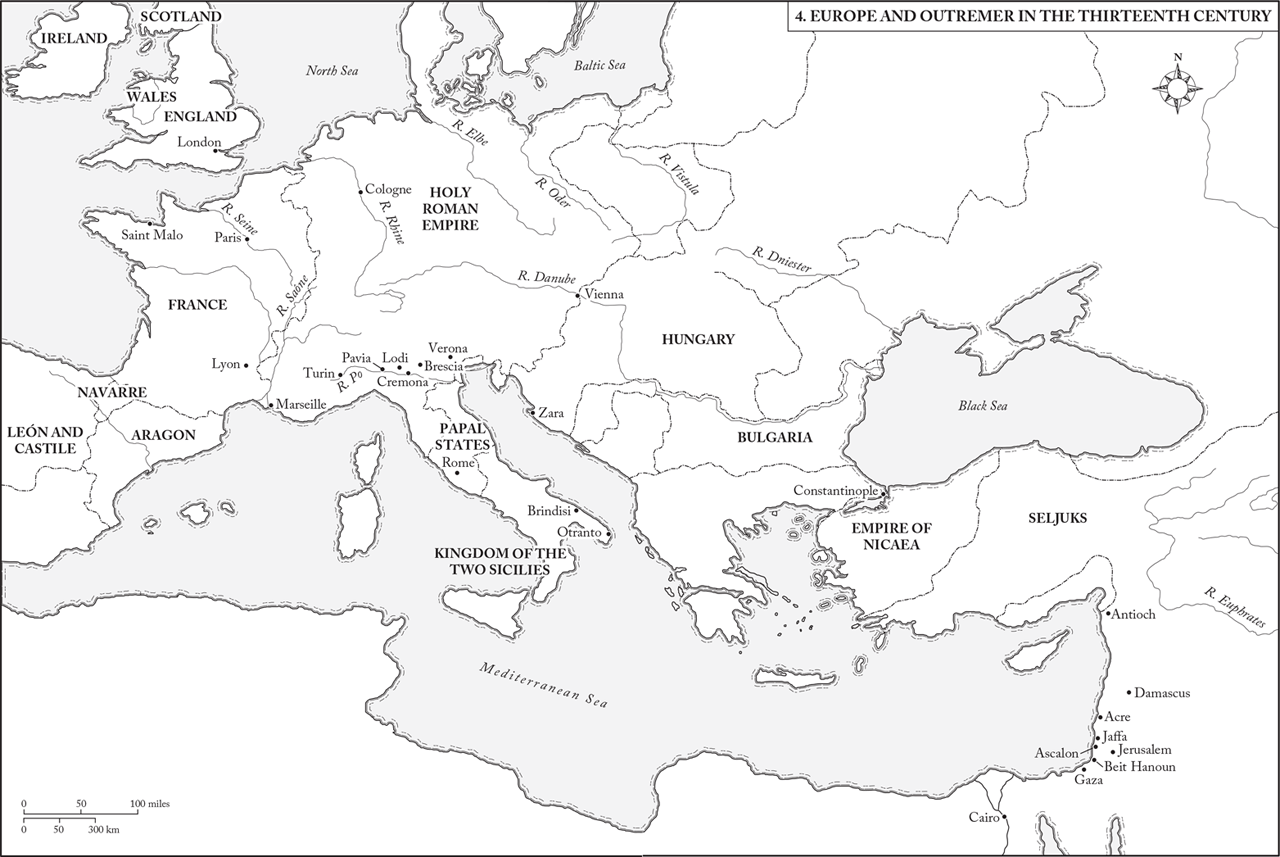
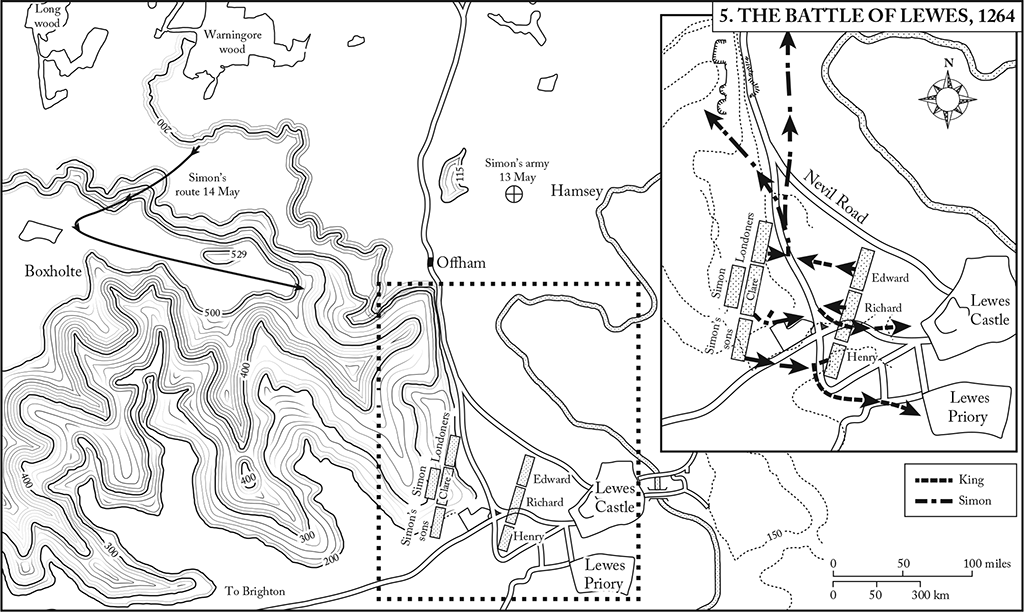
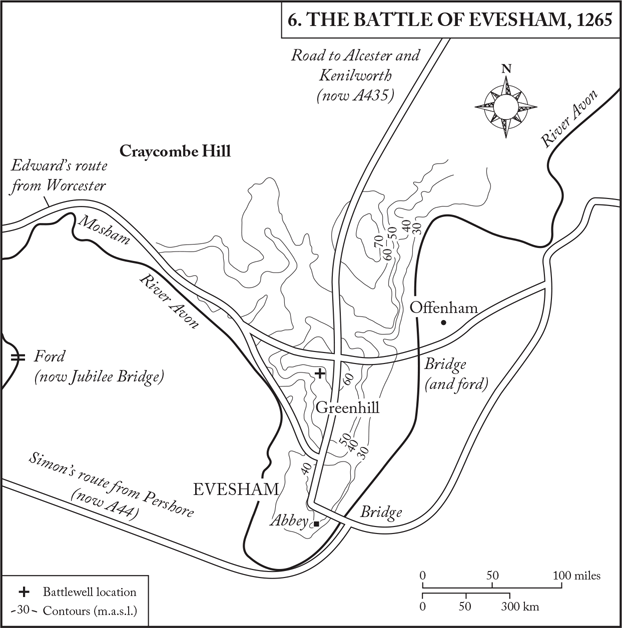
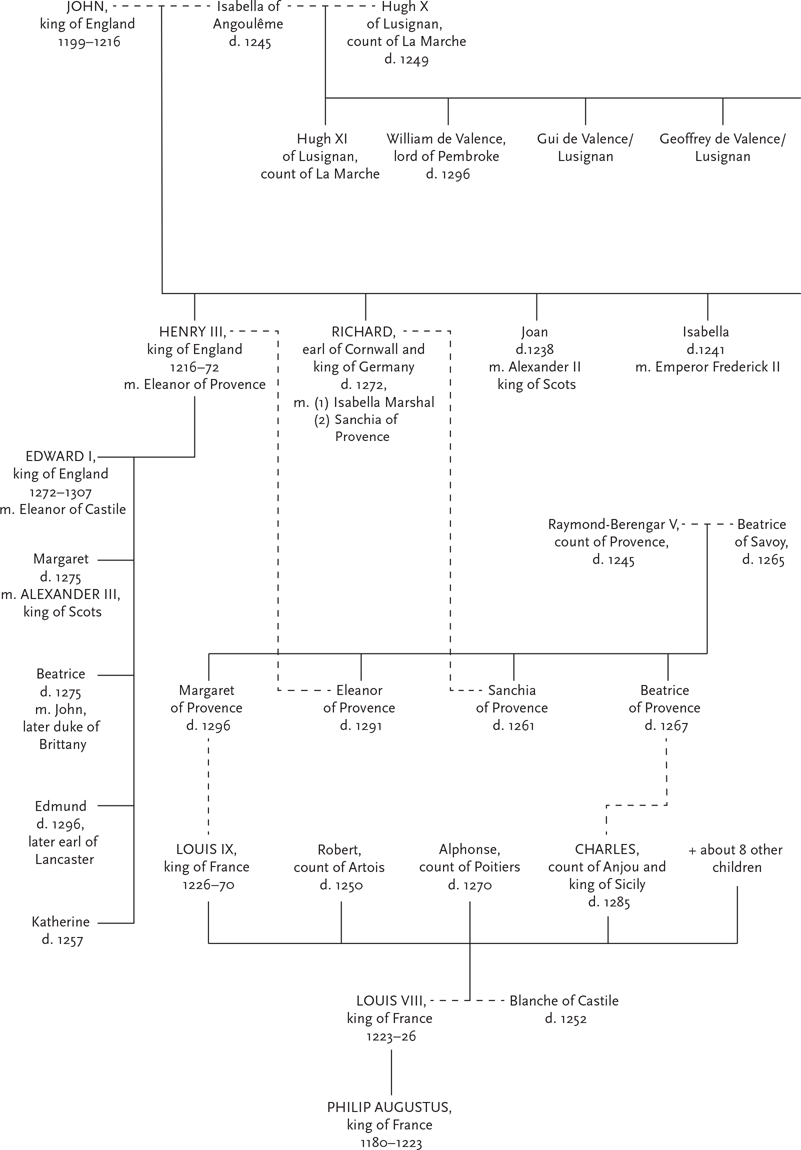
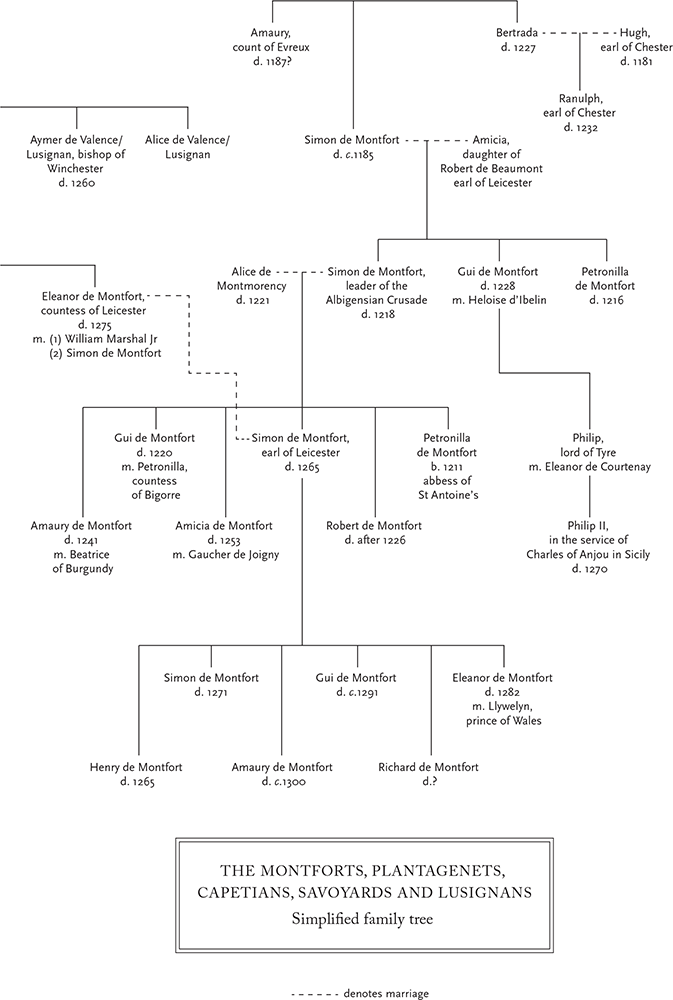
So let the harshness of this worlds sufferings not weaken but strengthen you, not cast you down but raise you up For suffering is to the righteous what pruning is to vines, what cultivation is to untilled land, what washing is to dirty garments, what a healing but bitter drink is to those who are ill, what shaping with a hammer is to vessels not yet fully moulded, what proving in fire is to gold. So, the discipline of suffering is for those who meditate not so much on its present annoyance as on the glory of its future reward an occasion not for sadness but for joy.
Robert Grosseteste to Simon de Montfort
It was around 8.30 in the morning, with summer rainclouds weighing heavy in the sky, that Simon de Montfort decided to die. He was sitting talking to his oldest friend, Walter, bishop of Worcester, in the abbey of Evesham when the news arrived: his enemies were upon him. As panic overtook his men, and they rushed to take up arms, Simon did not move. He was exhausted. He and his troops had barely slept or eaten for three days and he had marched them fifteen miles through the night, arriving at Evesham only as dawn broke across the Avon valley. Unbeknownst to him, Edward dispossessed heir to throne had also moved his forces under cover of darkness, bringing his army towards Evesham from the west to crest the hill above the town. Now Simon faced a decision. He could take refuge in the abbey and wait to be trapped like a beast in the hunt as his enemies closed in around him. He could withdraw and rush what he could of his forces across the bridge below the town, escaping to the road that led to Kenilworth, his fortress. Or he could fight.
He would be fighting uphill, against a superior force an option that a general of his skill was loath to choose. He would also be fighting to the death. In normal circumstances, the rules of chivalry ensured that noblemen would not be killed in battle but, rather, captured and ransomed. These were not, however, normal circumstances. Already, fifteen months before, on the battlefield of Lewes, Edward and his father, Henry III, had proclaimed that no quarter would be given to their enemies for Simon, earl of Leicester, had done what no one before had dared to do: he had disinherited the crown in favour of government by council. At Lewes Simon had taken the king and Edward captive, and for the past fifteen months had been ruling England at the head of a conciliar regime. But at the end of May 1265 Edward, in a thrilling moment of triumph, had escaped and joined his allies, the barons of the March of Wales, to raise an army. Now, on 4 August, he was poised to reclaim his kingdom. Edward was a fearsome enemy, twenty-six and bursting with martial energy like a lion, as the songs already sung of him proclaimed. No rapprochement would be possible. For Simon, defeat would mean annihilation.
Staying seated as the tumult was raised around him, Simon weighed all this and chose his path: he would make a fight of it and die. The choosing was important. He would give himself to death willingly, in a righteous cause, fighting for God and for justice, knowing that in his martyrdom he would find a place in heaven beside the saints themselves. This is what his father the renowned crusader and Simons constant exemplar had done almost fifty years before, pouring out his blood on the fields of Languedoc in the cause of holy war.
Simon told Walter his decision. The two men rose, and Simon made his farewell with an embrace. The bishop was in tears.
As Simon readied to move his army out, the heavens darkened and the rainclouds burst, soaking his troops. The storm was brief, but a harbinger of what awaited them. One of them tried to stop it all: the men, he pleaded, had gone so long without food or rest that they were shattered, as were the horses. Why not take refuge in the abbey church its stone walls could be defended and wait for reinforcements to arrive?

